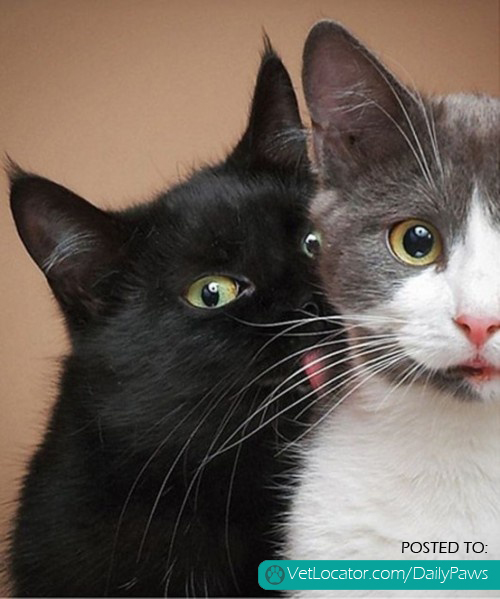Daily Paws Picture of the Day: Awwww Ferret!
March 21st, 2013Strangest Cat Meow EVER!!!
March 20th, 2013Daily Paws Picture of the Day: Chimpanzee with infant.
March 20th, 2013Daily Paws Picture of the Day: Cuddly Labradoodle
March 19th, 2013Matching Moms and Kittens.
March 18th, 2013Daily Paws Picture of the Day: Awwww Cats!
March 18th, 2013Adorable Cat Wants Some Petting
March 15th, 2013Poison Prevention Week Brings Timely Reminders for Pet Owners
March 15th, 2013Here is an excellent article from the University of Illinois College of Veterinary Medicine on what to do about pets and toxins by Hannah Pitstick.
March 17 to 23 is National Poison Prevention Week, and Easter celebrations follow shortly thereafter. Both occasions, along with the onset of spring and increased outdoor time, make this month ideal for raising awareness about common toxins that may put pets at risk, according to experts at the University of Illinois Veterinary Teaching Hospital in Urbana.
Many of the more than 100,000 instances of pet poisoning in the U.S. each year are caused by substances found in or around the home, such as chocolate, human medications, and certain plants.
The following reminders may help you keep your pet safe from potential poisons.
- Acetaminophen or other human medicines and grapes and raisins are among the many household items that can be toxic to your animals.
- Pet hazards lurk in Easter’s aftermath; chocolate can cause vomiting, diarrhea, agitation, tremors, and possibly seizures depending on how much is eaten and the size of your dog. Seek veterinary attention if your pet helps you “clean up” the chocolate candy.
- Flowers are one of the biggest Easter-related concerns. True lilies, such as Easter lilies and stargazers, are extremely toxic to cats; and tulips, daffodils, and hyacinths will cause vomiting.
- Is your pet safe in the backyard? Yews, azaleas/rhododendrons, water hemlock, poison hemlock, and castor bean are among the highly toxic plants that are very common in the Midwest. Also beware of products like snail and slug baits (containing metaldehyde) and cocoa mulch, which, just like chocolate, can cause heart problems and can even be fatal at high doses.
- Mushrooms marketed for human consumption are perfectly safe for animals, but mushrooms encountered outdoors, unless you are certain they are a kind safe for people to eat, should be kept away from your pet.
- If you live in central Illinois and your dog shows up at the door with a toad in its mouth, it is probably not a cause for alarm. However, if you are concerned that the toad may be toxic, wash out your pet’s mouth with water and call your local veterinary emergency room.
For more information about pets and toxins, consult your local veterinarian. In case of emergency, the University of Illinois Veterinary Teaching Hospital offers 24/7 medical services; call 217-333-5300 or visit illinoisvetmed.com for more information.






